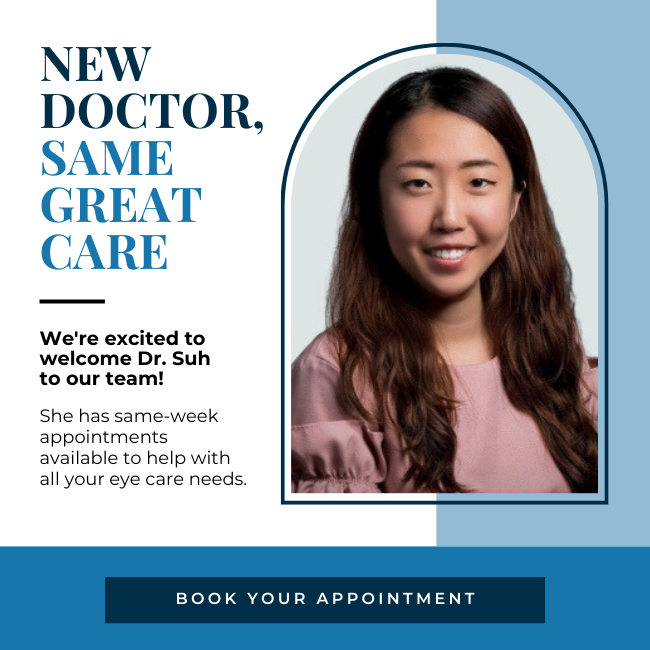If you spend your day staring at screens, you may experience a gritty, tired sensation in your eyes. This is a common experience for many working professionals. While you might look for a quick fix, like a supplement, it’s helpful to know the full picture before you choose a path.
The truth is, there isn’t one single supplement for dry eyes because the right approach depends entirely on the specific cause of your discomfort. Understanding what’s behind your symptoms is the first step toward finding real, effective relief. Let’s explore some options for eye comfort and why undergoing a comprehensive eye exam for professional advice is so valuable.
What Does Dry Eye Feel Like?
Dry eye symptoms can be more than a minor annoyance; they can affect your focus and productivity throughout the workday. You might notice a few different signs. These can change from one day to the next.
The common symptoms of dry eye include:
- A stinging or burning feeling
- Scratchy or gritty sensations
- Stringy mucus in or around your eyes
- Sensitivity to light
- Redness
- Difficulty with nighttime driving
- Watery eyes, the body’s response to the irritation
- Blurred vision or eye fatigue
Supplements and Nutrients for Eye Health
Certain nutrients play a crucial role in maintaining your overall eye health and wellness. When you look at supplements, you’ll often find these ingredients mentioned. They can support your eye comfort and health.
Omega-3 Fatty Acids and Eye Moisture
Omega-3 fatty acids are known for their role in reducing inflammation in the body. For your eyes, they can contribute to the oily layer of your tears. This important layer helps prevent your tears from evaporating too quickly. At our clinic, we offer PRN omega-3s to specifically help with dry eyes.
Vitamin D and Tear Function
Vitamin D supports various body functions, including those related to your eyes. It can help improve factors that contribute to tear quality. This may also help reduce irritation on the surface of your eyes.
Lutein and Zeaxanthin for Eye Protection
These antioxidants help filter some types of light, which is relevant if you work on a computer all day. They support the cells in your eyes that help you see clearly. You can find them in leafy green vegetables, such as spinach and kale.
Why Supplements Are Only Part of the Puzzle
Supplements can be a supportive measure. Dry eye is a complex condition with multiple possible origins, ranging from environmental factors to individual health needs. For example, a deficiency in certain vitamins, such as Vitamin A or D, is sometimes linked to dry eye symptoms, but it’s just one of many possibilities.
An eye care professional can help you figure out what’s really going on with your eyes by using innovative eye care technology for an accurate diagnosis. This personalized approach looks at your whole health picture. It helps you move beyond just managing symptoms.
How an Eye Exam Helps You Find Relief
A comprehensive eye exam does more than check your prescription; unlike a simple sight test, it gives a clear view of your overall eye health. An exam allows us to have a conversation about your work, your lifestyle, and the symptoms you experience. It is a thorough health check that can detect underlying issues.

For dry eye, an optometrist can assess your tear production and quality to identify the specific type of dry eye you may have. This allows for more effective recommendations beyond what you can find on a shelf. A dedicated optometrist can help you create a plan tailored just for you.
This detailed look means we can recommend a path forward that makes sense for your eyes. The goal is to help you find lasting comfort. This approach is more direct than trying different products on your own.
Eye Exam Coverage and Your Options
It’s practical to know what your costs might be. For young working professionals, eye exam coverage is often provided through a combination of provincial health plans and workplace benefits. Understanding your coverage can make it easier to prioritize your eye health.
OHIP Coverage
For people aged 20 to 64, OHIP may cover an annual major eye exam if you have a specific, eligible medical condition that affects your eyes. This includes conditions like diabetes or glaucoma. Many dry eye assessments fall outside this coverage unless they are linked to another medical diagnosis.
Use Your Workplace Benefits
Many professionals have private health insurance through their workplace. These plans often include vision care that helps cover the cost of eye exams, prescription glasses, and other related treatments. We recommend reviewing your plan details to determine which services are included to meet your needs.
Take the Next Step Toward Visual Comfort
At Dr. Rehana Manji & Associates, we’re here to help you understand your options and find a path to comfortable vision. Your eyes and vision are precious, and you don’t have to put up with constant discomfort. Our team will work with you to determine your needs and recommend treatment options to help you find relief. If you’re looking for an optometrist who can get to the bottom of your symptoms, we invite you to book an appointment with our team. We’re ready to listen and create a customized plan for your visual needs.


